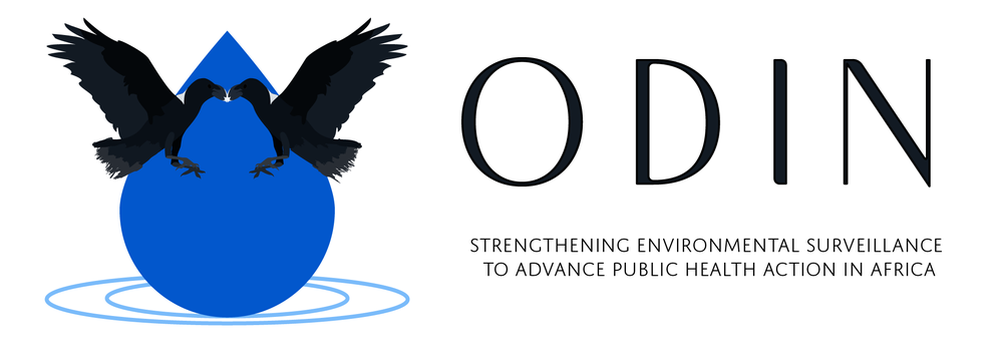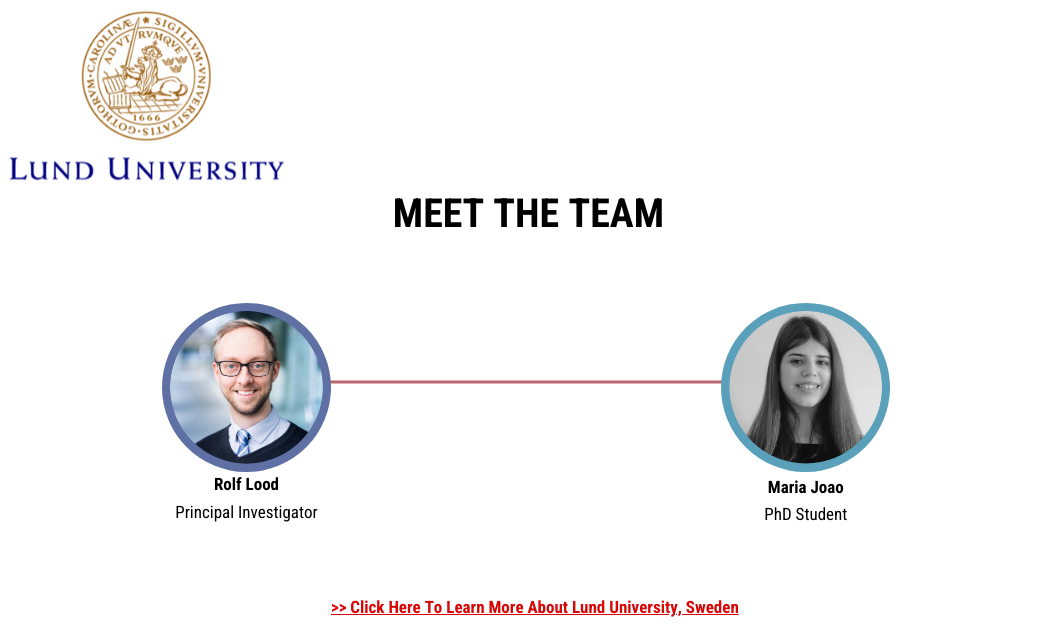lead institution: Lund University
Primary Investigator: Rolf Lood
Aim:
Establish a Genomic Epidemiology Network comprising all projects funded from the call HORIZON-JU-GH-EDCTP3-2022-CALL1-01-03 and the project funded under HORIZON-JU-GH EDCTP3-2022-OA2 which supports coordination activities for the collaboration and brings together the contribution from the Gates Foundation
Organise periodic meetings of the Genomic Epidemiology Network
Establish joint working groups on topics of interest
Description of work and roles of partners:
Task 1: Governance of Genomic Epidemiology network; Participants: All
The collaboration within the Genomic Epidemiology Network will be governed by a Collaboration Agreement and membership will include all participating projects that are linked through Article 7 in their grant agreements, namely EpiGen Ethiopia, GenPath Africa, GREAT-LIFE, PANGenS, ODIN, NGS4PublicHealth.
Task 2. Genomic Epidemiology network meetings; Participants: All
Regular meetings will be organised, which will be attended by the project coordinators, invited work package leaders, scientific leads and working group leaders and other relevant participants to monitor progress of the collaboration, identify collaborative opportunities and exchange experiences to avoid duplication of efforts. The project officer from the University of Western Cape supported through funding from the project “NGS4PublicHealth” will initially be responsible for setting up these meetings, including the organisation of the working groups, and will serve as the primary point-of-contact for the EDCTP3 grantees from the call GH-EDCTP3-2022-CALL1-01-03. After a certain period, a rotating network coordination among the EDCTP3 grantees with adequate geographic representation will be implemented until the finalization of the projects’ durations. The responsible project officer(s) from GH EDCTP3 JU will also be invited to the meetings.
Reports of the meetings will be made available to GH EDCTP3 JU upon request and meetings’ outcomes will be included in the yearly update report on the collaboration between the projects included as deliverables D8.2.
Ref. Ares(2023)3463011 - 17/05/2023
Task 3. Set-up joint working groups; Participants: All
Joint working groups will be the fora where all projects (EpiGen Ethiopia, GenPath Africa, GREAT- LIFE, PANGenS, ODIN, NGS4PublicHealth) collaborate on common topics of interest (potential topics are described below).
The Term of Reference (ToR) for the working groups will be agreed including the selection of work group leaders, co-leads (rotating leads if desired) and members.
The list of working groups will be updated at each periodic network meeting where amendments to existing working groups can be proposed and where new working groups can be suggested.
Working groups will meet virtually and, if needed, through face-to-face meetings. It can also be envisaged that one or several consortia will organize joint workshops where all network partners are invited to attend. Travel costs of the participants will be covered by the grant budget of the respective project that the participant belongs to.
Minutes of working group meetings will be made available to GH EDCTP3 JU upon request and outcomes of working group discussions will be included in the yearly update report on the collaboration between the projects included as deliverables D8.2.
Areas for collaborative working groups should include but are not limited to:
1. Technical working groups on exploration, identification and implementation of synergistic actions between projects (or subset of projects), e.g. working groups on actions that cover surveillance of the same disease and working groups on actions that cover the same approach to surveillance, e.g. environmental surveillance, development of new diagnostics etc. Task in these groups include exploring and identifying synergies, sharing of best practices and update on results with the potential to combine efforts for more robust outcomes.
2. Training
Tasks should include:
i. Coordination of trainings, organization and participation in joint trainings
(e.g. NGS academy training programs) as well as development of relevant
materials/supporting documentation
ii. Curriculum alignment including with the NGS academy for PGS
iii. Online learning tools made available through a joint website
iv. Establish alumni platform for students and fellows
v. Gender intentionality strategy application
3. Data Standards and Data Integration Platform Design & Implementation
Tasks should include:
Contribution to PHA4GE working groups to develop or adapt standards and workflows
In recognition that one size does not fit all, this group does not aim to create a singular data integration platform, but instead share lessons, approaches, and resources and harmonize approaches as much as feasible.
4. Communities of Practice
Tasks should include:
Shared approach to creating a community of practice for Genomic Epidemiology for public health in Africa building on the Africa PGI
Strategy to bring in other relevant networks, such as Pathogens Genomic Diversity Network Africa (PDNA)
Sharing of resources, including study tools (SOPs, protocols, surveys etc) and publications, webinars etc as well as opportunities, and best practices
5. Communication and policy translation
Tasks should include:
Development of visualization tools, policy brief templates, and other communication tools to translate genomic epidemiology for different audiences including policy makers
Sharing of best practices and lessons in what does and doesn’t work. Drawing also on lessons from other experts and groups.
Drafting of proposals for sustainability of the Genomic Epidemiology Network for relevant stakeholders.

